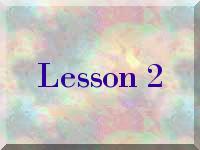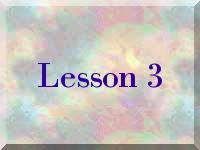Lesson 4

Instructional Objectives
The overall purpose of this unit is for students to make their own connections between physical geography, natural resources, and global climate with relation to the development of culture. In this lesson, the students look at some generalizations about the natural rise of civilization. They will illustrate the major steps in the development of civilization, then apply all they have been working on in the unit up to this point (Lessons 1 through 4) in a 5 page written report of the discovery, colonization, exploration and cultural development of their continent.

Time Required
One class period to review and illustrate the stages of civilization. Allow three to five days for the completion of the Continent Report.
Advanced Preparation/Prerequisite Knowledge/Skills/Illustrative Materials
If internet access is available, students should be directed to the Early History website. (If access is not avaiable for all students, teacher may use an Averkey or computer projection system to demonstrate. The site could also be photocopied for students to read .) After connection to prior knowledge and insight into preparing their own stages of Civilization, students will begin the lesson. Students will need colored pencils, a copy of the Understanding Civilization Information Sheet and the Stages of Civilization Activity Sheet. The information sheet should be read to or with the class. However, the information sheet is designed to be embellished. Stop and ask the students to make predictions. You could start the lesson by telling the students that a large part of understanding culture is by simply thinking. Ask the students, "Why don't Eskimos wear bathing suits?" The students will quickly answer, "Because it is too cold." As you read the information sheet to the class, have the students make the logical connections. Ask questions. Make it fun.
The students will also need a copy of the final instructions for the (The Continent Project). You may want to approach it as a separate lesson, but the assignment is homework unless you allow your students to work in class. The directions are self explanatory, so students will have detailed directions to follow when they get home. However, it is always a good idea to go over the directions with the students while you have their complete attention.

Vocabulary Civilization Culture Surplus Specialized Trade
Assessment/Evaluation
The "Stages of Civilization Activity Sheet" may be collected and reviewed by the teacher or corrected as a review in class the next day. The students will need these activity sheets as they will use them for reference while working on their continent projects.
![]() For the final assessment of Continent Map and Report, see the Assessment
and Student Work Page.
For the final assessment of Continent Map and Report, see the Assessment
and Student Work Page.


Procedures/Activities
After reading the Understanding Civilization Information Sheet, Help the students to identify the 6 stages of the development of civilization: 1) Farming and herding. 2) Skilled craftspeople and technology. 3) Trade 4) Towns 5) Writing systems and 6) Government. They should write these in order on the Stages of Civilization Activity Sheet. Then, in the boxes above the headings, the students will illustrate examples of each stage. This should help to cement some of the important points into the students knowledge.
Web Resources for Lesson 4
This is a simple page from the site below which explains how history began. This is relevant to the student's task of explaining the development of their continent.
This is a great web site in general for any curriculum involving world history.

Homework/Extensions
The final unit homework assignment (The Continent Project) is a review and reinforcement of the last four lessons. The students will take all of the information they have accumulated to complete a five page report about the development of their continent. This will be turned in with the final paint drawing of the continent they created in Lesson 1. The report will, of course, be fiction. However, the students are expected to show a working knowledge of the concepts covered in lessons one through four and all information in the report should be believable and logical. Rather than explaining the project in a redundant manner, please review the actual Continent Project Assignment Page as well as the Assessment and Student Work Page.
PDF Files
• In order to access the worksheets and answer keys included in this site, you will need to have Acrobat Reader installed on your computer. If you do not have it, you may download it for free at the link below.